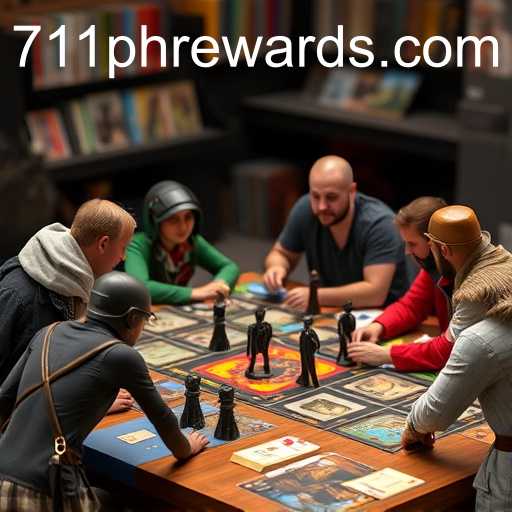Exploring the World of Tabletop Games
Tabletop games have evolved significantly over the years, transforming from simple pastimes into complex forms of art that can entertain, educate, and bring people together. From the early days of board games like Monopoly and Risk to today’s extensive range of thematic and strategy-based games, the tabletop gaming industry has become a significant part of popular culture.
The Rise of Tabletop Gaming
The allure of tabletop gaming lies in its ability to foster face-to-face interaction, something that other forms of entertainment often lack. In an era dominated by digital technology, tabletop games offer a refreshing break from screens, encouraging players to engage in physical presence and dialogue. This human interaction is pivotal in the social and psychological benefits that many find in these games.
The market for tabletop games is vast and continuously expanding, with niche games finding a solid footing among enthusiasts. Board games, role-playing games (RPGs), card games, and dice games are just a few categories that have seen renewed interest. The advent of platforms like Kickstarter has also made it easier for creators to bring new and innovative games to life, further fueling the industry's growth.
The Role of Community and Creativity
A critical factor that has contributed to the growth of tabletop games is the strong sense of community it fosters. Enthusiasts gather in clubs, conventions, and online forums to share insights and experiences, discuss strategies, and participate in creative collaborations. This social aspect enhances the enjoyment and accessibility of games, with many game nights becoming a regular social event for people across different demographics.
The creativity involved in tabletop gaming is another compelling aspect. Many games allow players to craft their own stories and strategies, offering a level of immersion and personalization that other games cannot match. Role-playing games like Dungeons & Dragons stand out in this regard, encouraging players to enter fantastical worlds of their own making.
711ph Rewards and the Modern Tabletop Scene
Innovations in the tabletop sphere aren’t just limited to game mechanics and storytelling. Reward systems like 711ph Rewards have become central to engaging players and enhancing the overall experience. These rewards offer players incentives, adding another dimension to the gaming experience by rewarding consistent play and participation.
The incorporation of rewards into tabletop games taps into the psychology of gamification. Such systems motivate players through extrinsic rewards, satisfying the desire for tangible recognition of achievements. Whether through points, badges, or exclusive content, 711ph Rewards systems are designed to keep players engaged and invested over time.
Impact of Tabletop Games on Society
Beyond mere entertainment, tabletop games also have implications for learning and personal development. They develop cognitive skills such as problem-solving, strategic thinking, and decision-making. By requiring players to think critically and adapt strategies, these games provide a rich learning environment.
Moreover, tabletop games can help improve interpersonal skills. Players learn to collaborate, communicate effectively, and resolve conflicts with teammates or opponents. This aspect is particularly beneficial for children and young adults, offering a formative experience that can positively affect personal growth and development.
The Future of Tabletop Gaming
The future of tabletop games looks promising with the increasing integration of technology. Augmented reality (AR) and virtual reality (VR) are becoming more involved in the gaming experience, creating hybrid models that blend physical and digital play. These innovations are set to change how tabletop games are played and experienced, offering richer narratives and environments for players to explore.
Furthermore, the emphasis on diversity and inclusion is driving changes in game design and representation. Contemporary games increasingly reflect a broader array of cultures, genders, and experiences, enabling them to reach wider and more varied audiences. The industry is beginning to recognize the need for greater inclusivity, ensuring that tabletop games remain relevant and appealing to all players.
Whether through traditional board games, strategic card games, or innovative role-playing adventures, the world of tabletop games offers an invaluable avenue for connection and entertainment. As the industry continues to grow and evolve, there is no doubt that it will remain a cherished pastime for countless enthusiasts around the world.








